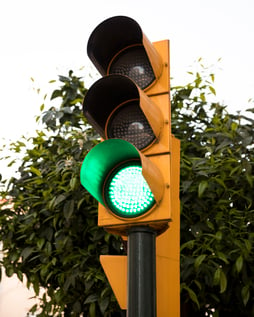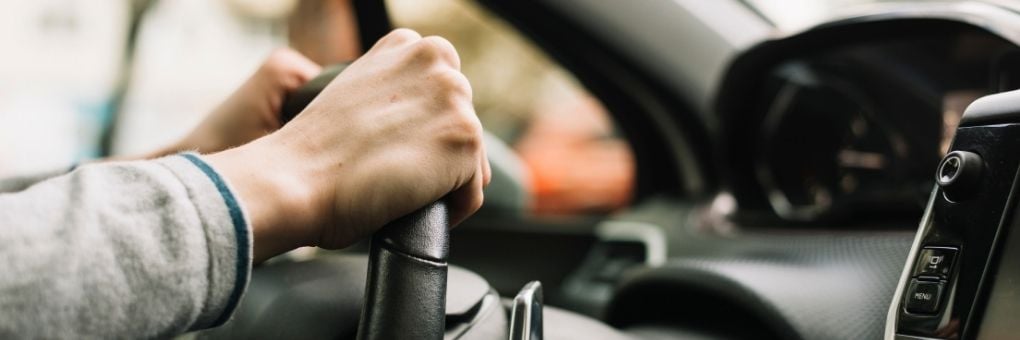Five Tips to Help Us Apologize Better
In a perfect world, we wouldn’t need to apologize. We wouldn’t do dumb stuff; we wouldn’t keep making mistake after mistake. We would master our emotions and not let them get the better of us. We would make sure we always use the right tone and the right words to convey our message. We wouldn’t just make decisions or volunteer to help based on good intentions, but we would miraculously have all the time we could possibly need for things to work out just right.
Unfortunately, we know, this is not a perfect world. We are fallen critters and we live in a fallen world that is fraught with countless opportunities to get it wrong. But one of the things I love most about this world is our capacity to love and forgive. From my own faith perspective, I know that this capacity is a gift that comes from a divine source who has demonstrated grace and forgiveness to me.
But even within the kindness of friendship or the grace and compassion of a good, solid working relationship, there is room for forgiveness, especially if we apologize. So, today we offer five tips to help us apologize better.
1. Reflect.
We’ve written before about the relentless pursuit of “Even Better”. If we have a habit of reflecting on our conversations, we have a greater chance of finding those moments that we need to apologize for. After a conversation with someone else, when you reflect on it, think about your own words, and your own tone, and your own messaging, and what you in response to them.
 Recently, I had one of those conversations where I was carrying some baggage from a prior moment and didn’t drop it before my next conversation began. Immediately following the conversation, as is my habit, I reflected on how it went. What went well, what went badly, what did I say, did my message come through clearly, what did they say, what did their tone say? As I thought about it, I realized that my tone had been crappy. For a reason entirely unrelated to the person I’d been talking to. I had delivered a fairly innocuous message with a crappy enough tone that, putting myself in their shoes, I would have been annoyed receiving it. As I spent time in this reflection, I realized that I was at fault and needed to fix it.
Recently, I had one of those conversations where I was carrying some baggage from a prior moment and didn’t drop it before my next conversation began. Immediately following the conversation, as is my habit, I reflected on how it went. What went well, what went badly, what did I say, did my message come through clearly, what did they say, what did their tone say? As I thought about it, I realized that my tone had been crappy. For a reason entirely unrelated to the person I’d been talking to. I had delivered a fairly innocuous message with a crappy enough tone that, putting myself in their shoes, I would have been annoyed receiving it. As I spent time in this reflection, I realized that I was at fault and needed to fix it.
2. Own It.
 Don’t hide from it. Don’t shove it under the rug. It’s really easy to brush off our mistakes. When we reflect on something and realize we were less than our best, it’s easy to say, “I’ll do better next time” or “Maybe they didn’t notice.” or “Maybe it wasn’t as bad as I thought. Maybe I’m being harder on myself than they would.” Especially after the moment has passed, it’s easy to ignore our mistakes and not take the appropriate accountability.
Don’t hide from it. Don’t shove it under the rug. It’s really easy to brush off our mistakes. When we reflect on something and realize we were less than our best, it’s easy to say, “I’ll do better next time” or “Maybe they didn’t notice.” or “Maybe it wasn’t as bad as I thought. Maybe I’m being harder on myself than they would.” Especially after the moment has passed, it’s easy to ignore our mistakes and not take the appropriate accountability.
But I say we need to own it. If you need to apologize for something, apologize for it. If you were in the wrong, own it. You don’t necessarily have to grovel or berate yourself as a human, and it doesn’t devalue your worth, but if you’ve made a mistake, own it and apologize for it.
3. Look for a Pattern.
 My mom taught me that “I’m sorry” means “I’ll never do that again.” I personally am uncomfortable with words like “always” and “never.” I’m hard-pressed to even come up with “most of the time” or “usually.” But when I apologize, I do want to say, “I feel bad enough about this that I will do my very best not to let it happen again.” I can’t say that in good conscience if I haven’t reflected on whether or not there is a pattern. Do I have a habit of being grouchy at a particular time or day or after a particular interaction? Do I have a habit of failing to meet my commitments or letting someone down under a certain set of circumstances?
My mom taught me that “I’m sorry” means “I’ll never do that again.” I personally am uncomfortable with words like “always” and “never.” I’m hard-pressed to even come up with “most of the time” or “usually.” But when I apologize, I do want to say, “I feel bad enough about this that I will do my very best not to let it happen again.” I can’t say that in good conscience if I haven’t reflected on whether or not there is a pattern. Do I have a habit of being grouchy at a particular time or day or after a particular interaction? Do I have a habit of failing to meet my commitments or letting someone down under a certain set of circumstances?
When I look at my reflection, and I spend time thinking about whether or not I need to own something, I ask myself, “Have I done this before? Is this a pattern?” If this is an isolated, one-off event, then no big deal. But if this is a pattern, I need to make adjustments to something bigger than this one-time apology. I need to correct it and improve, or my apology will be hollow.
4. Don’t Wait.
 In some circumstances, it could be days, weeks, or even months until we have the opportunity to see the person again. And so many times, when we’ve made a mistake, we wait until just the right moment — until the timing is right, until the stars align, or until everything feels all hunky-dory, for us to have this uncomfortable conversation.
In some circumstances, it could be days, weeks, or even months until we have the opportunity to see the person again. And so many times, when we’ve made a mistake, we wait until just the right moment — until the timing is right, until the stars align, or until everything feels all hunky-dory, for us to have this uncomfortable conversation.
The truth is, an uncomfortable conversation will never feel comfortable. The very nature of an apology is expressing humility and admitting fault. Who likes to do that!? It’s always going to be awkward. So, don’t wait. How many feelings have continued to be hurt between the time I did something stupid and the time that I actually apologized? If that elapsed time is days, weeks, or months, who knows what kinds of stories the other person might create in their head about me or the incident?
After the conversation I mentioned in tip one, I realized I needed to follow-up with the person. Because of the importance of the relationship and knowing there would never be a comfortable time to apologize, I knew it couldn’t wait. I was driving at the time of the conversation, but I immediately pulled over to the side of the road and sent an apology via email. I knew the person I had talked to would be driving as well and I wanted to be sure they would get my apology as soon as they got back to their desk. Don’t wait. Pull over if you have to and carve off a couple of minutes to do the right thing.
5. GOMO.
 A colleague and friend of mine shared this acronym, GOMO, a number of years ago based on some work that she was doing with a colleague of hers, and the idea has stuck with me ever since. GOMO- Get Over it, Move On.
A colleague and friend of mine shared this acronym, GOMO, a number of years ago based on some work that she was doing with a colleague of hers, and the idea has stuck with me ever since. GOMO- Get Over it, Move On.
When we make a mistake, it is important we accept accountability, we apologize, and we make it right as quickly as possible. It’s also important we learn from it, avoid repeating the same behaviors, and adjust our habits if we need to so that we can be more successful next time. But there is no need to hash and rehash a mistake. We don’t need to remind ourselves of it, and we don’t need to remind others of it. Get over it once the apology has been made, and put it behind you. Move on to even better.
There you have it. Five simple tips when you need to Pull Over and Apologize. How about you? What ideas do you have? Join us on social media.








